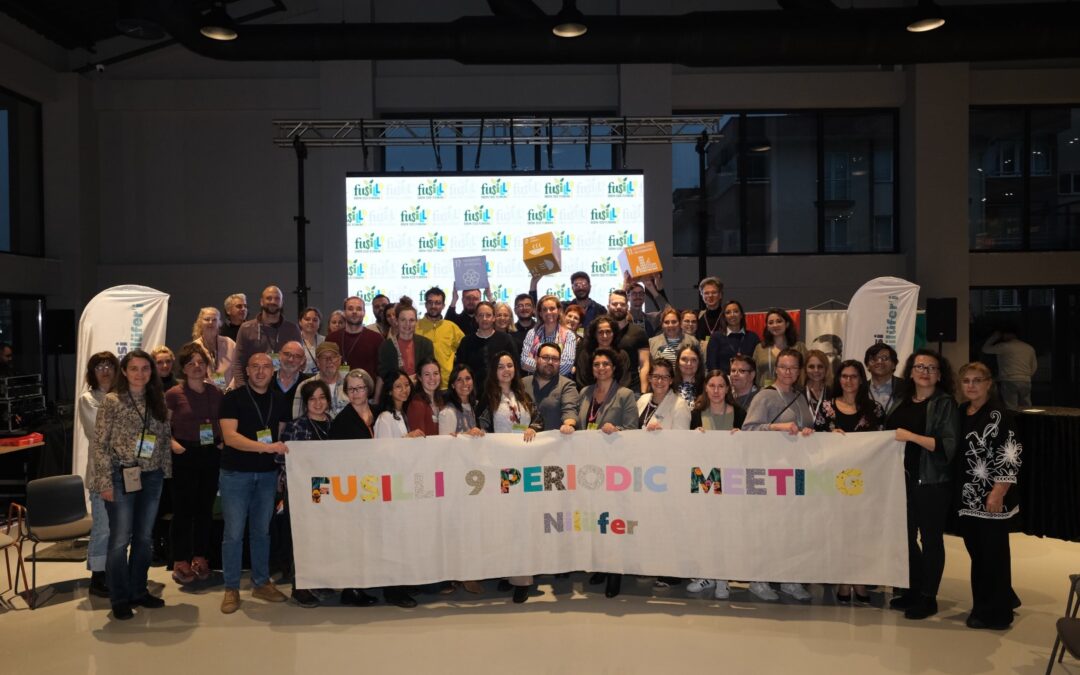Nilufer Municipality honored to be hosting the FUSILLI Final Conference and 9th Periodic Meeting. When we explained what was done in Nilufer at many FUSILLI meetings, we were met with very nice reactions. But we could also read the following thought in people’s eyes: “Too good to be true”. There were several visits made by work package leaders of FUSILLI and also there were visits from other projects and organizations including FAO. Now that Final Conference and 9th Periodic Meeting was a real chance to show all the FUSILLI Consortium that; “We actually cannot explain Nilufer well enough, we know that and for this reason we would like you to come and see it all in person.”
Two programmes have combined with a site visit day. While Final Conference was focusing on the economic impacts, urban planning, participation and equality models, guests have found a chance to visit the FUSILLI Cities Bazaar. On the site visit day, it was a little exhausting but guests had a chance to see the projects that played an important role in Nilufer’s transition to a sustainable food system on-site. Participants started the day with a surprise visit to Konak Local Producers’ Market in the morning, it was important to see the local product patterns. Altınşehir Neighborhood Garden and Nilufer Bostan salepoint was the second stop. It was a stop where we explained many local products, especially tarhana, to the participants.Pruning Wastes Composting Facility, Hasanağa Food Hub, Nilufer Medicinal and Aromatic Plant Processing Facility, Seed Library and Compost Unit in Ürünlü City Gardens were visited afterwards. Nilufer Agricultural Analysis Laboratory was the optional site visits for whom interested. Gölyazı was the cultural tour part of the site visits.
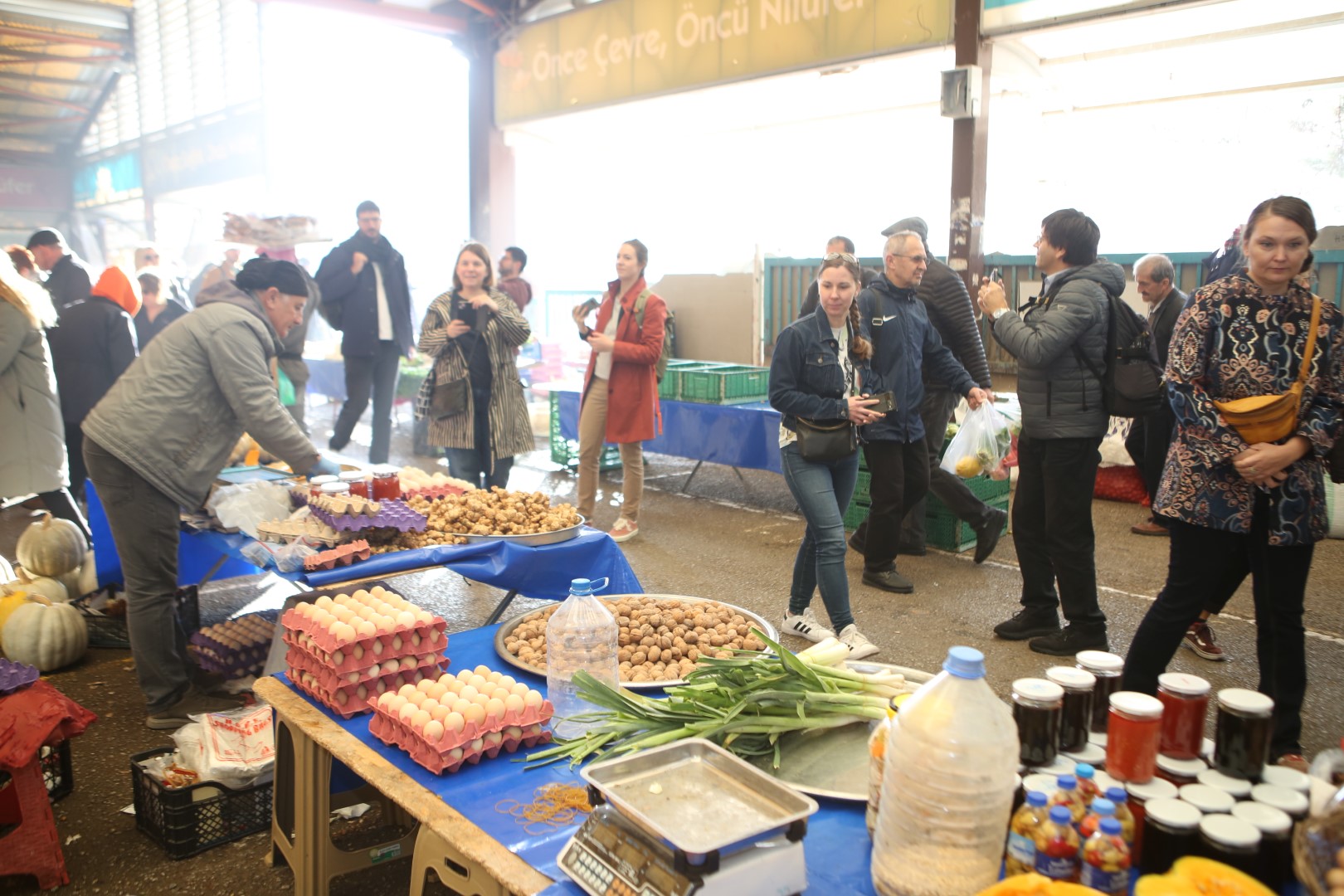
At the local market
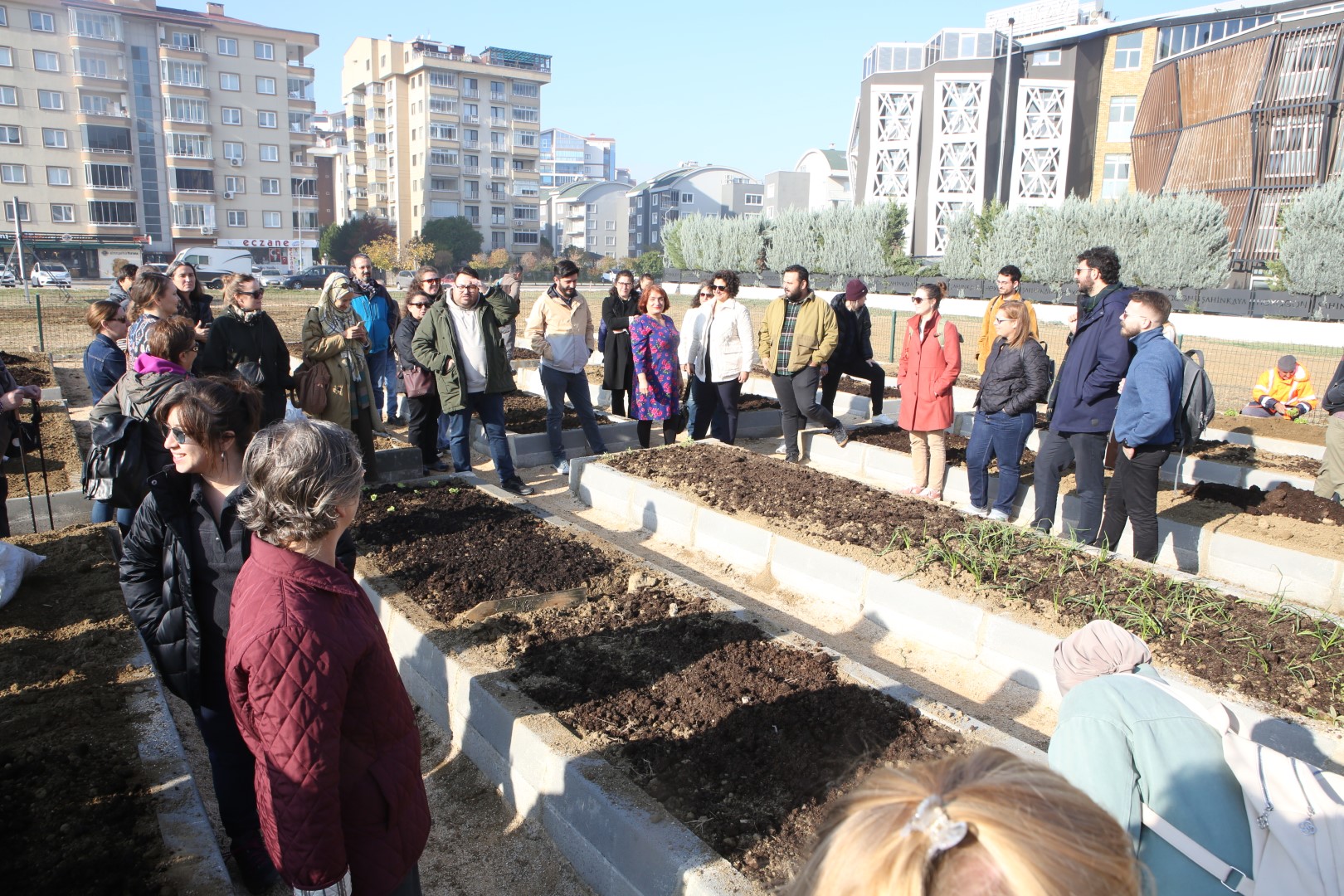
At the urban gardens
The last day was the 9th Periodic Meeting day. Project stakeholders, and representatives from 12 different cities made their final evaluations on the topics. We tried to offer our guests flavors befitting our ancient culinary culture for three days. However, it was a different pleasure to hear some things from the master; we heard them from Hakan Doğan, who is one of the people who can best explain the “simit” sold in millions every day in our country, the ancient “ramazan pide” that symbolizes solidarity every Ramadan month and the “tahini pide”, the oldest breakfast snack of our city. He even served the guests some of the products he produced in the traditional way. We hope they all left a mark on the palate. The last periodic meeting was the last time the FUSILLI consortium came together, and the memories we have accumulated over the past four years also gave us emotional moments.
Of course, this article will be more about the aftermath of FUSILLI, so I don’t want to get bogged down on the details. As being the local government, we closely followed the deterioration in Nilufer, so we knew the need for a sustainable food system even before FUSILLI kick-off and we had an idea about it. However, FUSILLI gave us brand new perspectives and gave us the opportunity to see very beautiful examples from FUSILLI cities.
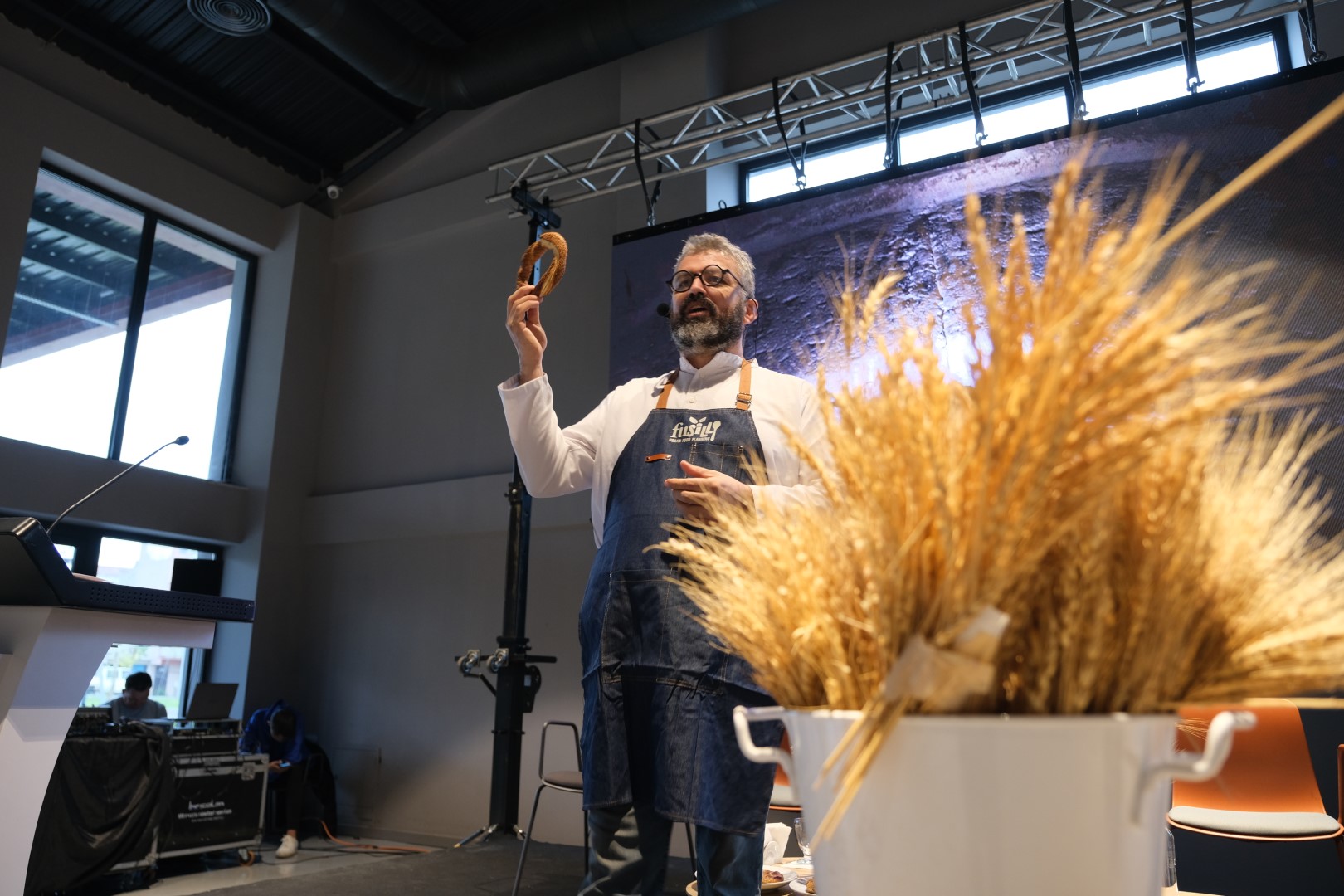
Master baker Hakan Doğan
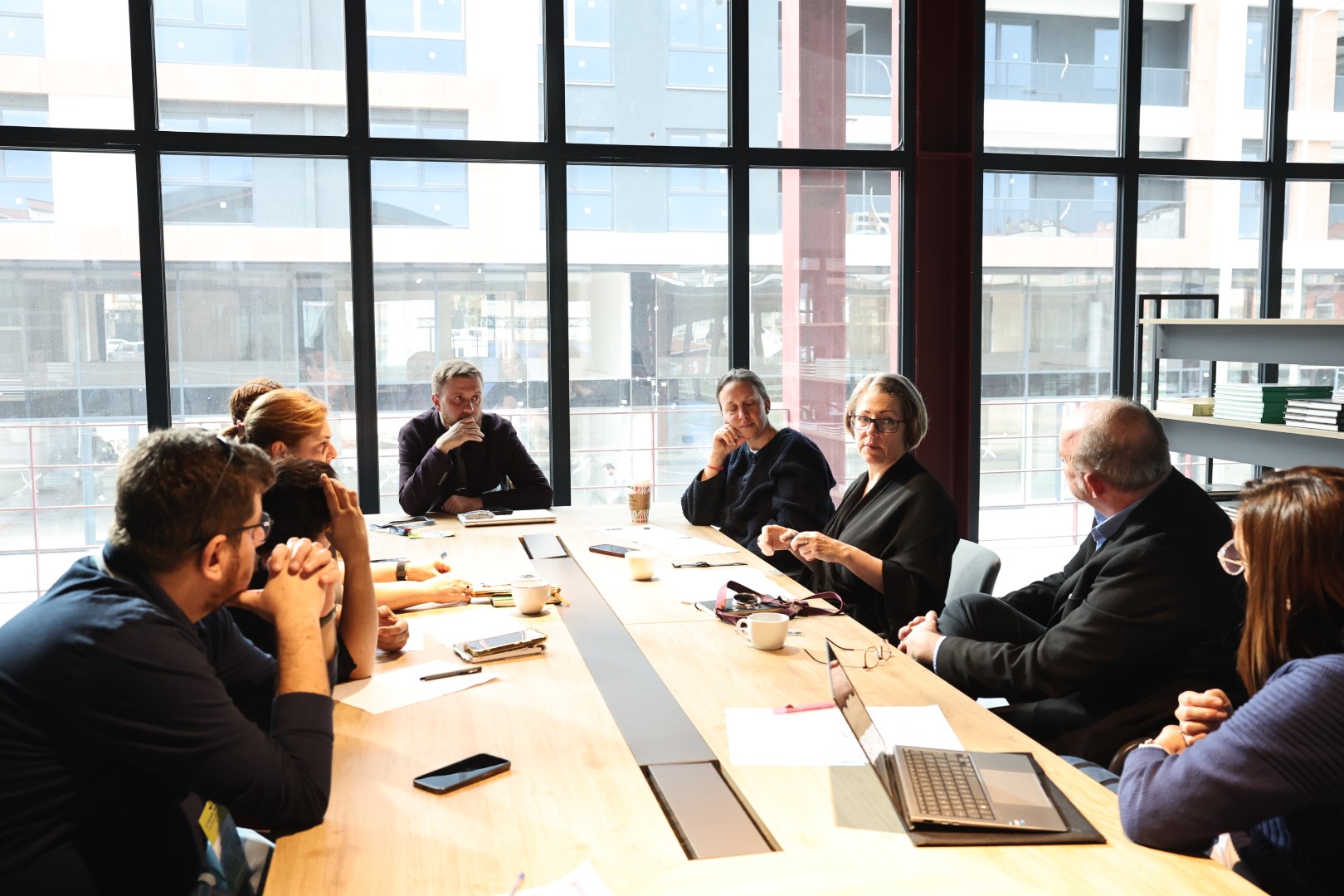
Discussing Food Policy Councils
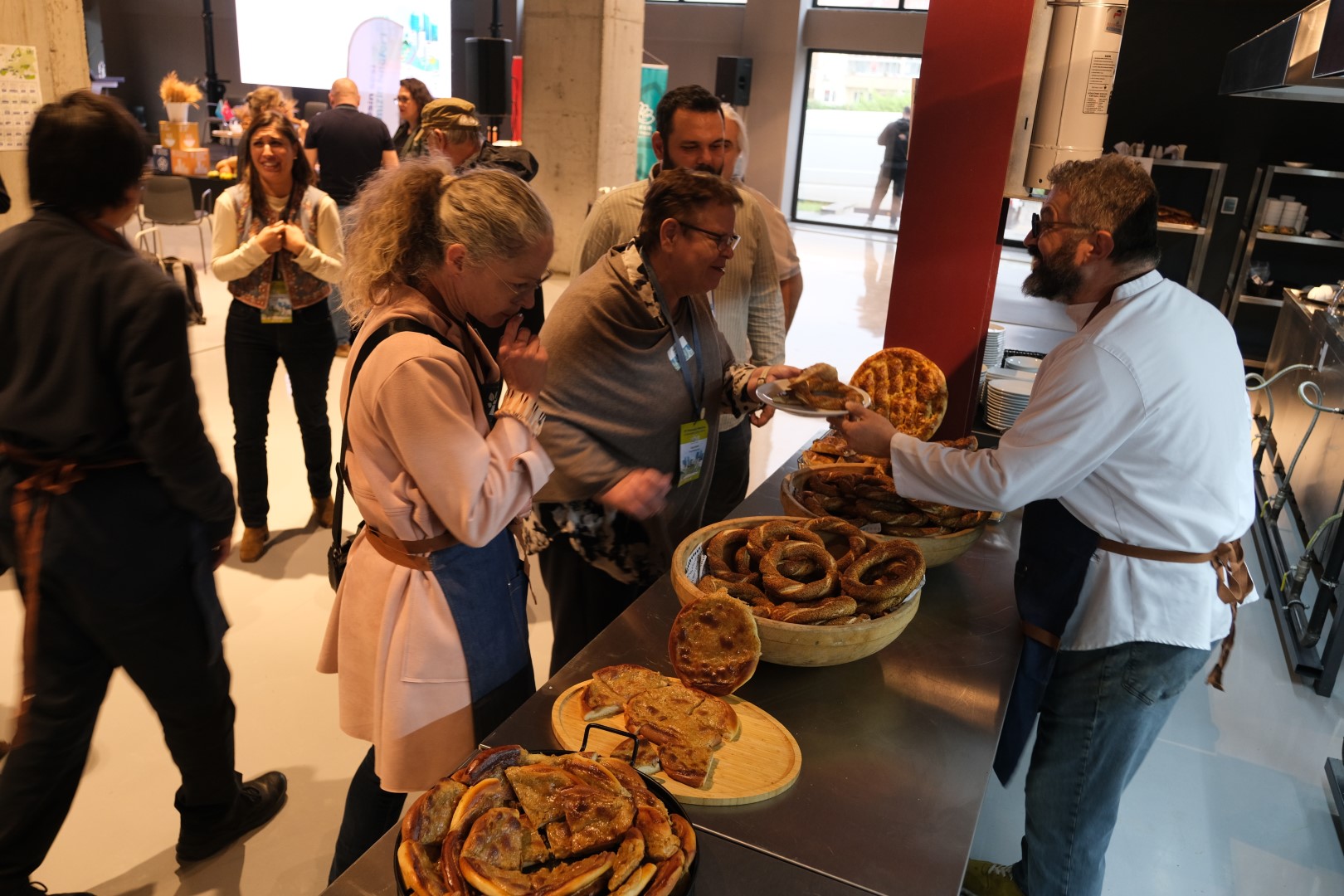
A taste of Simit
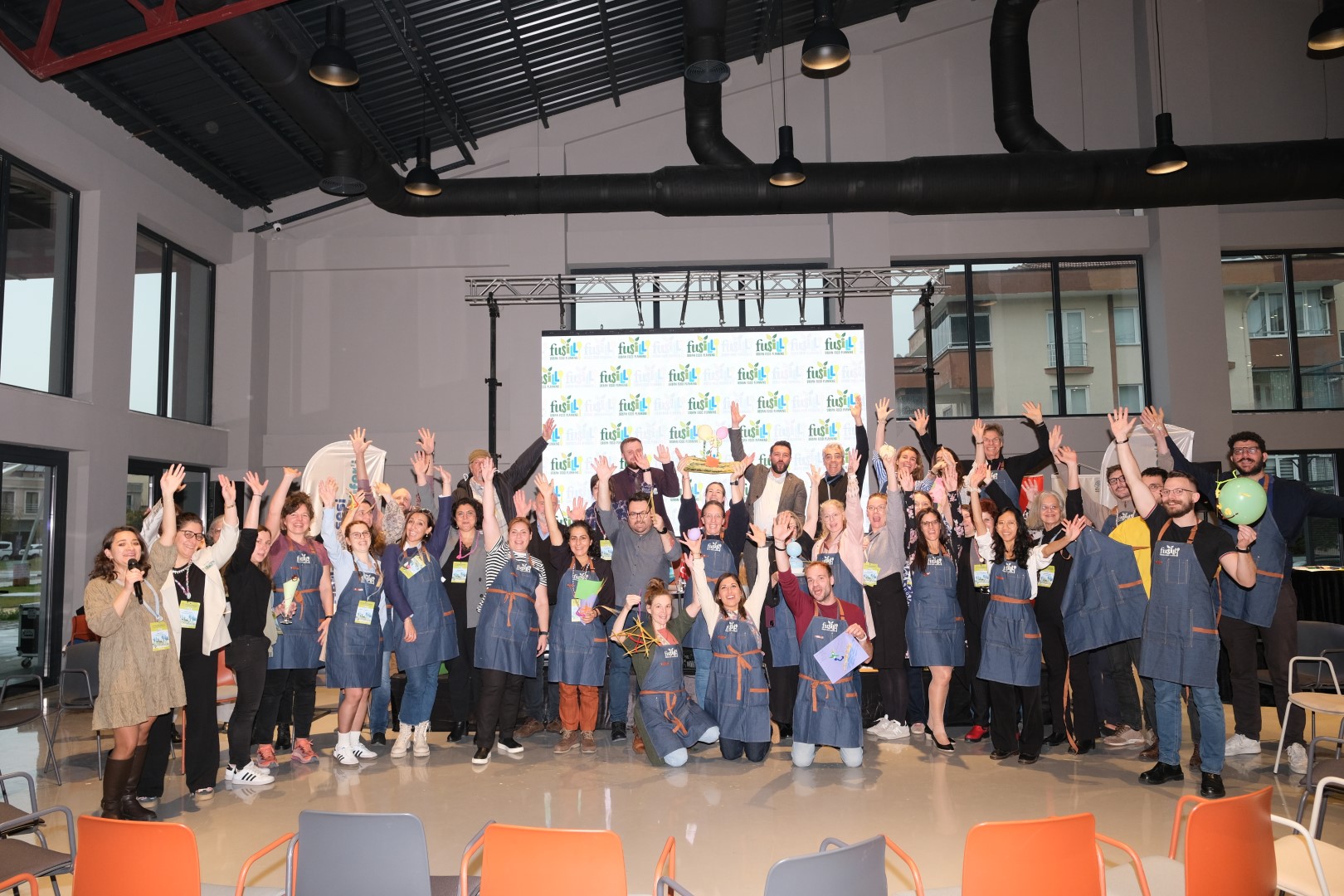
Celebrating FUSILLI
What is next?
After the Final Conference, we will continue to do what we know best and of course, we will cultivate the seeds we planted together with FUSILLI. While I call it “Nilufer Food System 2.0” for now, this initiative may evolve with time.
We will intensify support to strengthen local production, guiding farmers with scientific data to grow the right crops on the right soil with the right inputs. Our efforts to expand and implement comprehensive land–use maps aim to cover 100% of Nilufer, continuing efforts to optimize sustainable land use.
Efforts will also focus on ensuring that local products grown in the Nilufer’s territory are consumed locally, reducing food injustice so that we will continue making the healthy food more accessible and none of our citizens go to bed hungry. While doing this, we will also raise awareness among consumers and the HoReCa sector, and we want to reduce waste to the same extent by developing food banking.
In the past, decisions were being taken against us by the Metropolitan Municipality regarding urbanization and planning in agricultural lands, which would pave the way for construction, but now this has been reversed, we are all fighting against construction in agricultural lands together and we expect the positive developments to increase even more.
We aim to establish an advisory Nilüfer Urban Food Policy and develop working guidelines for the Food Commission.
We will continue to raise awareness among consumers on every issue and encourage them to consume sustainably. Raising consumer awareness about sustainable practices, expanding training sessions, seed exchanges, festivals, and collaboration with universities remain key. Plans include publishing a children’s book that tells children about healthy food, the environment, climate change, energy and waste management. At the same time, with the protocol we made with the University, we have created a new learning curriculum for children who will visit the Ürünlü Urban Gardens, and we will implement it soon.
We have also started our pilot activities in waste management in University canteens and started collecting tea and coffee wastes from 10 canteens. We are using this organic waste in our compost unit. Our goal is to spread this to all cafes on campus and kitchens in administrative buildings.
In fact, we hope to launch a mobile application that includes all of these different aspects of Nilüfer’s food ecosystem. We have already prepared a demo version, and we plan to launch our user-friendly mobile application that will include trainings, informative content, Q&A (snap and send), our publications, agricultural weather forecast, harvest calendar, landuse maps, QR reading (to show the journey of local products in Nilufer Bostan from farm to table), our seed library, local products, food banking, food ecosystem map, food charter, and current content on agriculture and food in Nilufer in the first quarter of 2025.
What we have learned from the cities in the FUSILLI consortium is endless and very inspiring, we hope that Nilufer will be remembered to some extent. Food system transformation is a long-term effort and municipalities cannot do it alone. Working together with citizens to heal the wounds of their own food ecosystem or to make it more resilient is not a topic that every city have in their agenda. Grant funding contributions aside, the FUSILLI project was a very important project for Nilufer. Nilufer Municipality wants to take part in many more projects with this project consortium. In the long-run, municipalities can spend much more than the funds they receive. For Nilufer, grants are actually a facilitator for taking some steps, that is, a factor that enables the first step to be taken. Nilufer Municipality will continue to capture new collaborations, funds, and learning opportunities from other cities. In the future, we will work to be remembered as a “must-see city” instead of being called “too good to be true”.

Group picture at the end of the Final Conference
Designing the Future
In Nilufer, our efforts are guided by a vision of sustainability and resilience. This includes creating livable environments for future generations, minimizing environmental pollutants, optimizing the use of energy and raw materials, and designing cities that align with their natural topography. We prioritize the health of people, ecosystems, and natural resources, while preserving local products and processes within broader environmental, economic, and social systems. Developing effective measurement systems to mitigate unsustainable impacts encapsulates our commitment to a sustainable and harmonious future. This is our formula for progress.
We have also seen very good examples on Living Labs, which are the basis of FUSILLI. It is a bit fantastical, but I have a fiction about this whole FUSILLI journey. So I would like to share with you how I look at LLs while constructing the future.
Let’s say one day, all the borders in the world disappear or are removed, or wait wait this is a bit difficult (!), let me explain with an easier fiction. Let’s assume that we have to migrate to another planet from the Earth where we have already exhausted all its resources, and if humankind has to live not with the borders of the lands it has, but only with the cultural heritage in its mind from its ancestors, then on that day, at that moment, it will know that what it needs is what it has learned, seen and experienced in Living Labs. This is the definition and vision of Living Labs for me. I believe that LL actions in all future projects can be built according to this vision.
No matter what happens in our country and in the world, we will continue to work to make agricultural development possible again, to work for a city where no child goes to bed hungry. We will continue working to “build another future” for our children, whose future has been stolen as a result of today’s extravagance of humanity.
As a memory of everything we have learned from FUSILLI cities and this journey, I think it would be nice to end my final words with the last message left by dolphins to humans before the destruction of the world in the Douglas Adams’ book; “so long and thanks for all the fish”.
Author: Mehmet Can Yılmaz (NIL)
Photos credits: Nilüfer Municipality
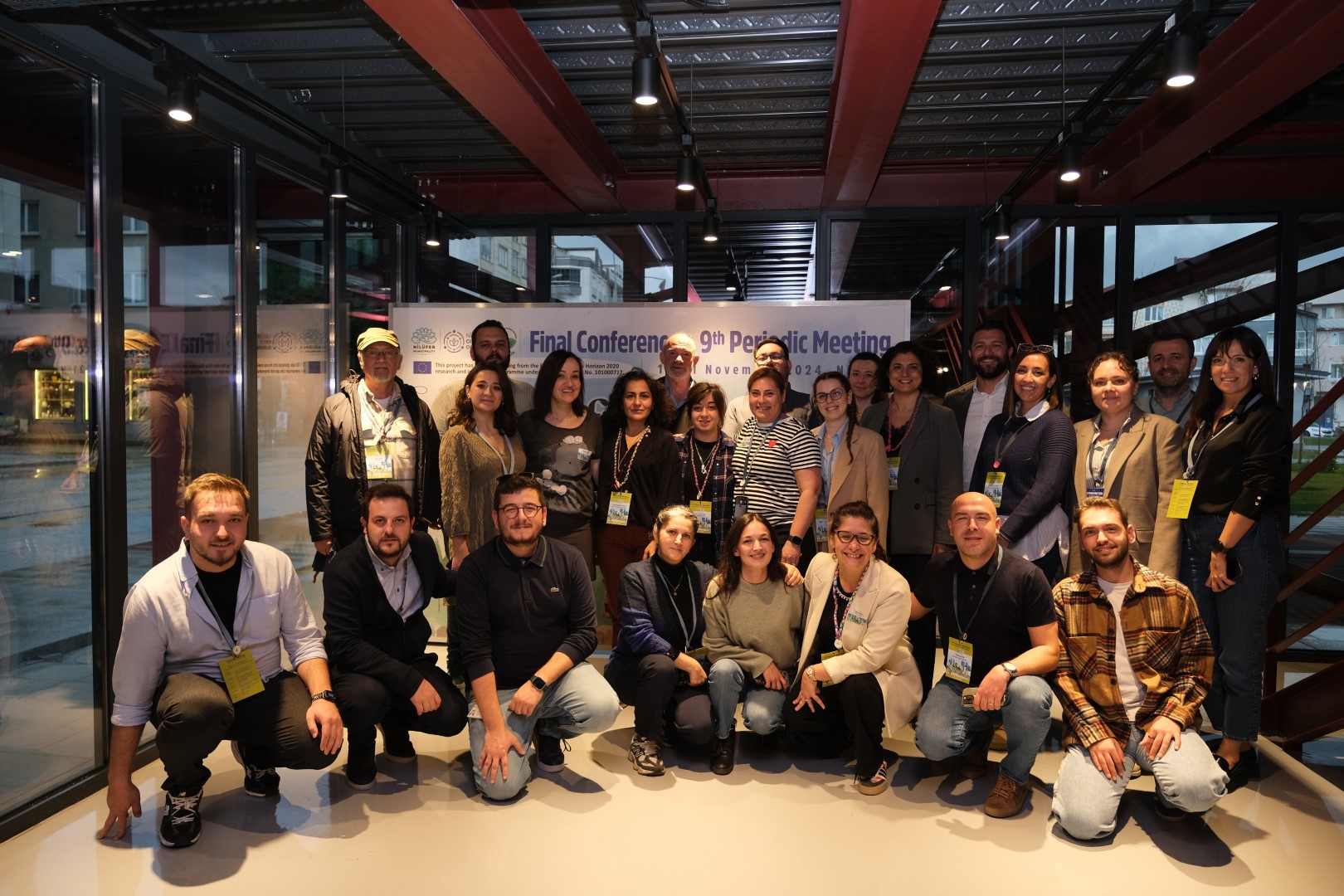
Group picture of the Nilüfer Team and beyond
